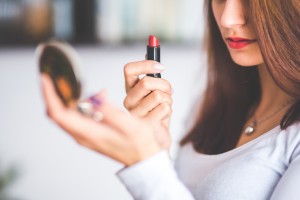Editor’s note: This is a satirical piece included in our coverage on global issues. All opinions are that of the columnist and not of Impakter.
The western image of a post-communist is not exactly flattering. A heavy browed, Nike clad, squatter, with a penchant for clear alcohol that feels sad all of the time because their world is painted in grey-scale and they dream in Tolstoy. In the American mind, a post-communist is a communist that gets to buy more stuff, because that’s the American dream that we liberated them for!
Mr. Gorbachev tear down this wall! We’re trying to build a Slavic Sephora, it’s called progress okay?
The reality is that Post-Communist nations bear little resemblance to the Soviet Union to which they once belonged. Standard of living has increased in every Communist nation since the fall, while inequality between these nations has also increased. Most have conformed to their neighbors in terms of economic and political leanings. If you live in Poland, your standard of living mirrors a Germans, which is a great standard of living especially if you really like raves with a strange blue-haired man named Sven. If you live in Uzbekistan your standard of living is significantly lower, and the gap between your income and that of someone who lives in Poland is about $25,000, during the Soviet Union that gap would’ve been about $11,000. So what this means is that for these countries Communism actually was a great equalizer, it equalized everybody to the same awful standard of living, but now some people (damn you extravagant Poles!) are living in excess compared to others.
 In this picture: Freedom
In this picture: Freedom
The most important factor for determining if a post-communist nation thrives is whether or not they have adopted democracy. Papa Reagan is so proud that’s he’s crying on a bald eagle from his grave right now.
There are a couple of reasons for this; during economic reform the electorate only kept in leaders who were making gains economically (regardless of political ideology). Are you a former supporter of Lenin? Are you a Mafioso? Have you literally murdered people? All totally fine as long as we’re making money. The other reason, democracy has a great PR team. They’re like the democratic Gestapo of PR teams.
After the fall, there were some pretty sweet economic deals from the European Bank for Reconstruction and Development (largely funded by the U.S. of A) IF your nation was willing to do one small thing, sign up for democracy. I know what you’re thinking; sort of mirrors the same economic coercion that caused these fledgling nations to be “liberated” into the system of communism. But it’s not the same, because when we liberated the Soviet Union, they had the option of not adopting democracy and thus causing their populace to starve due to our dismantling of their social and economic system. This is totally different than what bad guys do. We’re not bad guys, okay?
Related articles: “CHECKS AND BALANCES AND IMMIGRATION”
“THE INTERNATIONAL LANDSCAPE OF SOCIAL JUSTICE”
I’m not here to just bash on Capitalist Democracies however, after all, what happened during Communism was atrocious. My father is Bulgarian and he often told me stories of waiting in long lines for measly portions of food, sharing what little you had with your neighbors, and traveling around the city during long soccer games because your building was only afforded two hours of electricity at a time. This is unthinkable for me, because I live stream every sporting event I watch.
A friend told me that the difference between a Bulgarian and an American is when an American is backed into a corner they try to dig their way out, and when a Bulgarian is backed into a corner they stay there and take it, until the person beating them can’t hold out any longer. I’m actually not sure if he was on drugs when he said that, but it felt poignant come 2013.
 In this picture: More Freedom
In this picture: More Freedom
The year I was born, Post-Communist Bulgaria was only 5 years old. The Post-Communist Millennial was born and grew with their nation. And as the new reformist generation matured into adulthood, they brought with them monumental protests.
The protests had complicated origins; the easiest thing to say is the country’s utility companies gouged electricity bills to the point that many Bulgarian households were spending more money on electricity than any other living expense. The anger also spread to a discontent about rampant poverty throughout the country, a belief that the electoral system was flawed or rigged maybe, and resentment towards Prime Minister Bokyo Borisov for promoting political authoritarianism. The great thing about being born at the end of an era of rampant and destructive and horrific authoritarianism is the social media powered Bulgarian will not be having it.
On February 17th the protests gathered over 100,000 people (from a country of only 7 million) in 35 different cities to protest against monopolies. Eventually, Bokyo Borisov resigned, after the protests had worldwide recognition and 7 self-immolations under their belt.
Nothing says gumption like lighting yourself on fire – Joan of Arc
 In this picture: A “Politician.”
In this picture: A “Politician.”
The protests continued after the formal resignations of several politicians. When I visited Bulgaria in the summer of 2013 new protests were going on, with one main difference, an inherent lack of structure or goals.
I can distinctly remember the referee whistles biting my ears as I sat not far from a rally, some friends and I were on the steps of a Greek Orthodox church, when one (Anny) a blue-haired 16 year-old, came running up to us:
“I saw they’re selling blow-jobs for 1 leva to the protestors.”
Blow-job and whistle are similar words in Bulgarian.
“I’m sorry I haven’t really been following well, but what are the protests exactly about,” an American friend I brought with me addressed the whole group. I was happy he asked because I was too paranoid to seem ignorant to admit my own ignorance.
“Oh I don’t know, but I support the civil unrest. Before they got Borisov out and now they want the new cabinet out and also all of the rest of government.”
“What kind of system do they want to put in, instead of what they have currently?”
“Oh well that’s the part that no one can agree with what to do.”
Cigarette ash was flicked onto the ground. A 2-litre bottle of beer passed around the circle to swig from.
“That might end up being an issue.”
“Who knows, it’s become very abstract and elitist, I think.”
The beer was passed again. A cigarette butt crushed into ash on the steps of the Church.
“I don’t think they’re elitist at all! Bulgarians want our nation to be better through democracy, that’s why we have the democracy. So maybe we don’t know the exact things, but the nature of what we want is to stop being controlled by the government and we can demand that now.”
The 2-litre bottle emptied, the last drop sloppily licked up, and thrown away.
 In this Picture: “Protesting.”
In this Picture: “Protesting.”
There were 41 days of consecutive protests over the summer of 2013. And while the media reported they were lackluster and undermanned, I stood in a city of one million for an entire summer and everyday at three p.m. I walked instead of taking the bus, because the streets were blocked with ideas.
Black Lives Matter has become an international protest movement, largely powered by social-media. They have over 23 chapters in the United States and around the world; they are led by a variety of individuals. There have been die-ins, freedom rides, protests at Mayor’s offices and political rallies. Amazing things are being done because of the way the American system and people treat our minorities, treat our poor, and treat the bulk of the oppressed populace that they are meant to protect and serve. The government should be responding to BLM just like Borisov’s cabinet responded to 2013 protestors.
You might think the two are incomparable, American government is more established and powerful, Bulgarian people were driven to this by extreme poverty (a slant I have at times found offensive). But I know a little bit about the Bulgarian people and government, and I know about the American people and government, and they’re almost the same.
Effective protesting = powerful action/ideas + pragmatism.
Bringing it back to what my friend said earlier, I don’t believe that Americans try to dig their way out of corners, and I don’t believe that Bulgarians just stand there and take abuse. Both cultures are filled with people who want their rights insured by their governments and by their fellow citizens. Both cultures are filled with people who are willing to go to extremes for those rights. Here’s what I learned from Bulgaria: effective protesting= powerful action/ideas + pragmatism. Here’s what I learned from my friend and comrade Karl Marxy-Marx, when the government is unresponsive to the needs of the populace, the government will be disbanded. Sup America?
_ _




 In this picture: Freedom
In this picture: Freedom In this picture: More Freedom
In this picture: More Freedom In this picture: A “Politician.”
In this picture: A “Politician.” In this Picture: “Protesting.”
In this Picture: “Protesting.”





